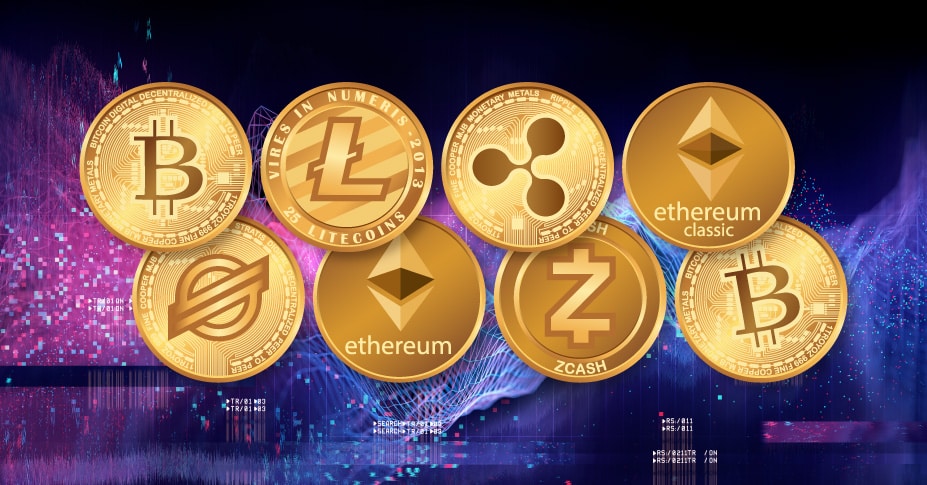All about cryptocurrency
Cryptocurrency is decentralized, meaning it’s not controlled by any government or financial institution. Instead, cryptocurrencies rely on a technology called a blockchain, a distributed ledger that records all transactions across a network of computers https://casinolistaustralia.com/.
Cryptocurrencies are supported by a technology known as blockchain, which maintains a tamper-resistant record of transactions and keeps track of who owns what. The use of blockchains addressed a problem faced by previous efforts to create purely digital currencies: preventing people from making copies of their holdings and attempting to spend it twice
Cryptocurrency transactions are generally safe due to the blockchain technology that underpins them, which ensures transparency and prevents tampering. However, the safety of your assets depends largely on how you store and protect them. Hot wallets (internet-connected) are convenient but more vulnerable to hacking. Cold wallets (offline storage) offer greater security, especially for long-term holdings.
Cryptocurrencies are digital assets that are secured by cryptography. As a relatively new technology, they are highly speculative, and it is important to understand the risks involved before investing.
Some of these clever folks, called cypherpunks, thought that governments and corporations had too much power over our lives. They wanted to use the internet to give the people of the world more freedom. Using cryptography, cypherpunks wanted to allow users of the internet to have more control over their money and information. As you can tell, the cypherpunks didn’t like “trusted third parties” at all!
All about cryptocurrency
With self-custody wallets, you are the sole party responsible for maintaining a record of your private keys, which are associated with a ‘seed phrase’. If you lose this seed phrase, there is no password recovery method to retrieve it.
The legal status of cryptocurrencies varies substantially from country to country and is still undefined or changing in many of them. At least one study has shown that broad generalizations about the use of bitcoin in illicit finance are significantly overstated and that blockchain analysis is an effective crime fighting and intelligence gathering tool. While some countries have explicitly allowed their use and trade, others have banned or restricted it. According to the Library of Congress in 2021, an “absolute ban” on trading or using cryptocurrencies applies in 9 countries: Algeria, Bangladesh, Bolivia, China, Egypt, Iraq, Morocco, Nepal, and the United Arab Emirates. An “implicit ban” applies in another 39 countries or regions, which include: Bahrain, Benin, Burkina Faso, Burundi, Cameroon, Chad, Cote d’Ivoire, the Dominican Republic, Ecuador, Gabon, Georgia, Guyana, Indonesia, Iran, Jordan, Kazakhstan, Kuwait, Lebanon, Lesotho, Macau, Maldives, Mali, Moldova, Namibia, Niger, Nigeria, Oman, Pakistan, Palau, Republic of Congo, Saudi Arabia, Senegal, Tajikistan, Tanzania, Togo, Turkey, Turkmenistan, Qatar and Vietnam. In the United States and Canada, state and provincial securities regulators, coordinated through the North American Securities Administrators Association, are investigating “Bitcoin scams” and ICOs in 40 jurisdictions.

With self-custody wallets, you are the sole party responsible for maintaining a record of your private keys, which are associated with a ‘seed phrase’. If you lose this seed phrase, there is no password recovery method to retrieve it.
The legal status of cryptocurrencies varies substantially from country to country and is still undefined or changing in many of them. At least one study has shown that broad generalizations about the use of bitcoin in illicit finance are significantly overstated and that blockchain analysis is an effective crime fighting and intelligence gathering tool. While some countries have explicitly allowed their use and trade, others have banned or restricted it. According to the Library of Congress in 2021, an “absolute ban” on trading or using cryptocurrencies applies in 9 countries: Algeria, Bangladesh, Bolivia, China, Egypt, Iraq, Morocco, Nepal, and the United Arab Emirates. An “implicit ban” applies in another 39 countries or regions, which include: Bahrain, Benin, Burkina Faso, Burundi, Cameroon, Chad, Cote d’Ivoire, the Dominican Republic, Ecuador, Gabon, Georgia, Guyana, Indonesia, Iran, Jordan, Kazakhstan, Kuwait, Lebanon, Lesotho, Macau, Maldives, Mali, Moldova, Namibia, Niger, Nigeria, Oman, Pakistan, Palau, Republic of Congo, Saudi Arabia, Senegal, Tajikistan, Tanzania, Togo, Turkey, Turkmenistan, Qatar and Vietnam. In the United States and Canada, state and provincial securities regulators, coordinated through the North American Securities Administrators Association, are investigating “Bitcoin scams” and ICOs in 40 jurisdictions.
To put it very shortly, cryptocurrencies are a form of digital money. They can be used as a type of payment, or as an asset that you would trade with other people, either in-person, or on a dedicated exchange platform, such as Binance or KuCoin.
It’s essentially a decentralized network, also called a distributed-ledger technology (DLT). This means there is no single authority serving as a gatekeeper or facilitator for the transactions taking place within the network.
Learn all about cryptocurrency
For the Bitcoin network, this ‘block reward’ currently sits at 3.125 bitcoins (BTC). That’s equivalent to about $209k USD at Bitcoin’s current price of $67k/coin in 2024. And remember, these ‘miners’ also get fees on top of this block reward!
The first cryptocurrency to be created was Bitcoin back in 2009. It was created by a pseudonymous developer named Satoshi Nakamoto. It was a new way to transfer value directly to a recipient without fees.
This ‘block reward’ paid to miners is the origin of all cryptocurrency coins (again, not tokens!). After miners (or validators for PoS networks) are given their reward, these parties can sell their coins on popular cryptocurrency exchanges like Coinbase.

For the Bitcoin network, this ‘block reward’ currently sits at 3.125 bitcoins (BTC). That’s equivalent to about $209k USD at Bitcoin’s current price of $67k/coin in 2024. And remember, these ‘miners’ also get fees on top of this block reward!
The first cryptocurrency to be created was Bitcoin back in 2009. It was created by a pseudonymous developer named Satoshi Nakamoto. It was a new way to transfer value directly to a recipient without fees.
This ‘block reward’ paid to miners is the origin of all cryptocurrency coins (again, not tokens!). After miners (or validators for PoS networks) are given their reward, these parties can sell their coins on popular cryptocurrency exchanges like Coinbase.